Neetu Singh
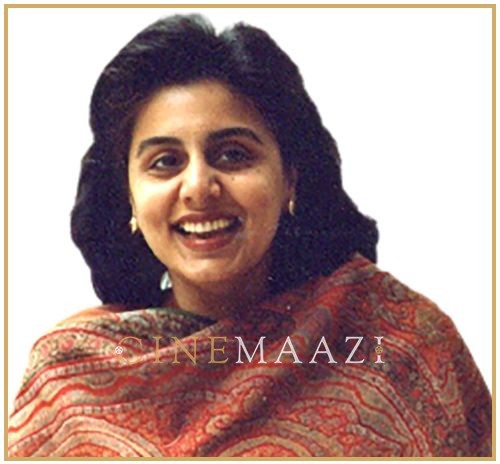
Subscribe to read full article
This section is for paid subscribers only. Our subscription is only $37/- for one full year.
You get unlimited access to all paid section and features on the website with this subscription.
Not ready for a full subscription?
You can access this article for $2 , and have it saved to your account for one year.
- Real Name: Harneet Kaur
- Born: 8 July 1958 (Delhi)
- Primary Cinema: Hindi
- Parents: Rajee Kaur and Darshan Singh
- Spouse: Rishi Kapoor
- Children: Riddhima Kapoor Sahni, Ranbir Kapoor
Neetu Singh was all about joie de vivre. From the classroom to the camera, hers was a career jumpstart. But she was no precocious adolescent trying to pose as a heroine. Rather, her onscreen effervescence was an extension of her off-screen innocence. If heroes felt protective towards her, heroines wanted to befriend her. So earnest and easygoing was her vibe. Her chemistry with Rishi Kapoor is the stuff of campus dreams... years before Kuch Kuch Hota Hai happened. Trademark flicks, silky straight tresses, kohl eyes... the audience lapped up everything about her, even her plumpness. Her impromptu jigs were in sync with her inner rhythm and enthused a whole generation to the dance floor. Unrehearsed, unaffected, unpretentious... Neetu Singh was the unobtrusive scene stealer. In a decade that breezed through with 50 films and millions of fans... Neetu Singh is one child actor who graduated to be the most loved child woman...” writes Farhana Farook in Filmfare, 2018. Neetu Singh would go on to feature in more than 70 films in the course of her career, including Khel Khel Mein (1975), Kabhi Kabhie (1976), Amar Akbar Anthony (1977), Dharam Veer (1977), Chakravyuha (1978), Kaala Patthar (1979), and Yaarana (1981). A teen icon and one of the most- loved stars of the 1970s, she has continued to charm audiences in supporting roles in films such as Do Dooni Chaar (2010), Jab Tak Hai Jaan (2012) and Jug Jug Jiyo (2022). She is also credited as costume designer for films such as Nagina (1986), Amiri Garibi (1990) and Daraar (1996).
Born Harneet Kaur on 8 July 1958 into a Jatt Sikh family in Delhi, she was the only daughter of parents Rajee Kaur and Darshan Singh. The family later moved to Peddar Road in Mumbai, where she joined the Hill Grange school. However, after her father’s early demise, she joined the film industry as a child artiste, propelled by her ambitious mother. She made her debut, credited as Baby Sonia, in T Prakash Rao’s Suraj (1966) starring Rajendra Kumar and Vyjayanthimala. She had apparently been recommended by Vyjayanthimala herself, who suggested her name to the director. As a child artiste, she went on to appear in films such as Devendra Goel’s comedy Dus Lakh (1966); the Mala Sinha-Biswajeet starrer Do Kaliyaan (1968) in which she played the double role of twins who reunite their estranged parents; Waris (1969) and Pavitra Paapi (1970).
At 15, credited as Neetu Singh, she made her debut as the female lead in Rickshawala (1973) opposite Randhir Kapoor. Though the film, directed by K Shankar, was a flop, she won attention the same year with her cameo in Nasir Hussain’s Yaadon Ki Baarat (1973) in which she played a dancer. Her popularity soared as she featured in the hit dance number Lekar hum deewana dil alongside Tariq Hussain. She rose to prominence with roles in the crime drama film Deewaar (1975), the thriller Khel Khel Mein (1975), the musical film Kabhi Kabhie (1976), the lost-and-found classic Amar Akbar Anthony (1977) and the fantasy film Dharam Veer (1977). She would win praise for her performances in the crime drama film Parvarish (1977), the horror film Jaani Dushman (1979), the disaster film Kaala Patthar (1979), the musical film Yaarana (1981).
Through the 1970s, she teamed up with Randhir Kapoor in films like Bhala Manus (1976), Heeralal Pannalal(1978), Kasme Vaade (1978) and Dhongee (1979). Opposite Shashi Kapoor she featured in Deewaar (1975), Shankar Dada (1976), Kala Pani (1980) and Ek Aur Ek Gyarah (1981). She paired onscreen with Rajesh Khanna in the action-comedy film Maha Chor (1976), the thriller Chakravyuha (1978) and the Punjabi film Sawa Lakh Se Ek Ladaun (1976). She starred opposite Jeetendra in films like Dharam Veer (1977), Priyatama (1978) and Chorni (1982) in which she played an avenger. She was seen opposite Vinod Khanna in The Burning Train (1980) and Raj Mahal (1982), while she paired up with Amitabh Bachchan in Yaarana, the drama Adalat (1976) and the thriller The Great Gambler (1979).
It was, however, with Rishi Kapoor that she formed a most successful pair, both onscreen and off it. She was seen as the perfect substitute for the vacuum created by the quitting of Dimple Kapadia from films. Young and bubbly, their vibrant chemistry in reel and real life was a hit. They paired together in the romantic drama Zehreela Insaan (1974) and the action romance Zinda Dil (1975). The romantic mystery Khel Khel Mein (1975) brought them together along with Rakesh Roshan, in a plot about three youngsters who play a prank on a wealthy jeweller but later find themselves framed for murder by a mysterious criminal. The action comedy Rafoo Chakkar (1975) in which they starred along with Rajendranath Malhotra, revolved around two men on the run from murderers, who disguise themselves as women and join an all-girl band. They starred in Yash Chopra’s Kabhi Kabhie (1976), a love story of generations and how a chain of events brings together old lovers as friends; the Manmohan Desai super-hit entertainer Amar Akbar Anthony (1977);Ramesh Talwar’s Doosra Aadmi (1977); the family drama Anjaane Mein (1978); B R Chopra’s romantic comedy Pati Patni Aur Woh (1978); the Ravi Tandon-directed Jhootha Kahin Ka (1979); Tinnu Anand’s action thriller Duniya Meri Jeb Mein (1979); and the drama Dhan Daulat (1980).
Writing in rediff.com, Dinesh Raheja underlines Singh’s no-fuss nature as one of the reasons for her becoming the favourite of filmmakers and co-stars. “The male actors, who were friends with Rishi, felt protective about his girlfriend. Also, the non-combative and non-competitive Neetu was never viewed as a threat by her female peers. In fact, she went on to share a close rapport with Rekha who even shared her exotic make-up secrets with her.”
Among her key performances, Khel Khel Main (1975) rates high, wherein she and Rishi Kapoor set campus goals for young audiences. The chart-topping songs Ek main aur ek tu, Khullam khulla pyaar karenge and Humne tumko dekha became a rage, as did her wardrobe of maxis, leather skirts and boots.
In the tense drama Deewaar (1975), she provided the necessary dose of light relief. The song Maine tujhe maanga tujhe paaya hai wherein she woos the hero became popular, as did Keh du tumhe which had her in the driver’s seat. In the fashion stakes, her bell-bottoms, blouses and key locket became must-haves.
Kabhi Kabhie (1976) portrayed her seeking her identity when her own love is threatened, while her on/ off relationship was explored in Doosra Aadmi (1977).
In Amar Akbar Anthony (1977), she essayed the Muslim Salma to co-star Rishi’s Akbar. Especially delightful were her appearances in the qawwali Parda hai wherein she finally lifts the veil and Humko tumse ho gaya hai pyar pictured on them in toy train.
She had the chance to display her histrionics in Priyatama (1977), the Basu Chatterjee film about romance succumbing to reality in a marriage, while Yash Chopra’s Kaala Patthar (1979) portrayed her as the spirited bangle-seller who sells colours and love but finds herself tragically left with broken dreams. Portraying shades of gaiety and grief, the role earned her a Filmfare nomination for best supporting actress.
Yaarana (1981) saw her play a mentor who falls in love with her student, played by Amitabh Bachchan.
On the personal front, she had become romantically involved with Rishi Kapoor around 1974, during the production of the film Kabhi Kabhie. Around five years later, the reportedly commitment-phobic Rishi eventually proposed to her in 1979. They were wed in a high-profile celebration on 22 January 1980. The actress, who had worked constantly in films since she was a child, happily bid adieu to her career post-marriage at the age of 21.
Staying with her in-laws Krishna and Raj Kapoor in Chembur for a few years, she would rate these years as the most beautiful. During this time, she grew close to her mother-in-law and also imbibed her legendary art of hospitality. Following the birth of children Riddhima and Ranbir, the couple moved to their bungalow KrishnaRaj at Bandra’s Pali Hill.
In 2009, she made a comeback to films after 26 years, essaying a cameo opposite her husband in Love Aaj Kal (2009), followed by Do Dooni Chaar in 2010. The latter saw her play a middle-class Punjabi mother in the Habib Faisal directorial, which won the National film award for best feature film in Hindi. She made a special appearance in Yash Chopra’s final film Jab Tak Hai Jaan (2012), and also co-starred with her son Ranbir Kapoor in the comedy Besharam (2013).
After nine years, and post the demise of husband Rishi Kapoor 2020, she ended her hiatus by starring opposite Anil Kapoor in Jug Jugg Jeeyo. Her natural and flawless performances have been a validation of her enduring talent and grace.
In an interview in 2022, she later spoke about coping with loss. “I feel that one has to just be positive to heal with happiness. The first six months after my husband passed away were so bad. I was really broken. But you have to pick yourself up. You have to say ‘this is it’. Life is too short, and in these (Covid-19) days, life has taught us that each day is a gift. Exercise karo, achha khao, acha piyo, achha bolo. If you eat well, your body will look good. If you speak well, people will love you. Speak well, eat well: this is my main mantra in life.”
The couple’s daughter Riddhima Kapoor, a jewellery designer, married Delhi-based industrialist Bharat Sahni in 2006; they have a daughter Samara Sahni. Son Ranbir Kapoor married actress Alia Bhatt in 2022; they have a daughter Raha Kapoor.
-
Filmography (51)
SortRole
-

Raaj Mahal 1982
-

Ganga Meri Maa 1982
-
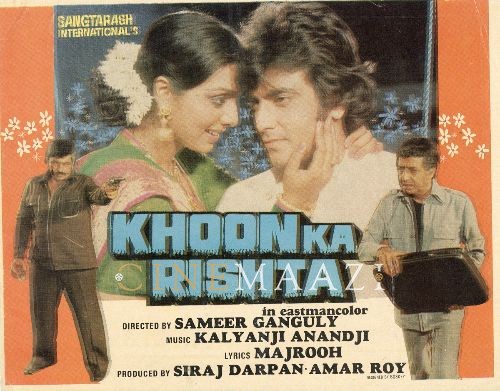
Khoon Ka Rishta 1981
-

Kaala Pani 1980
-
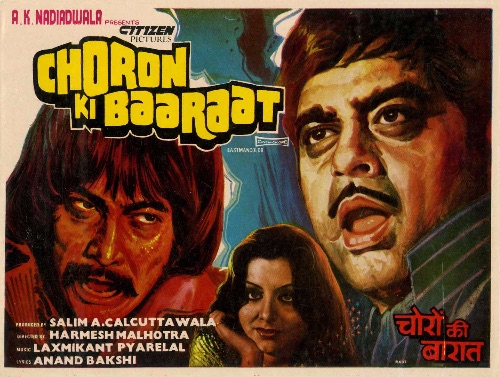
Choron Ki Baaraat 1980
-
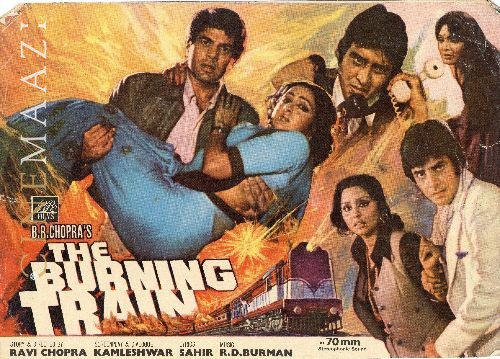
The Burning Train 1980
-
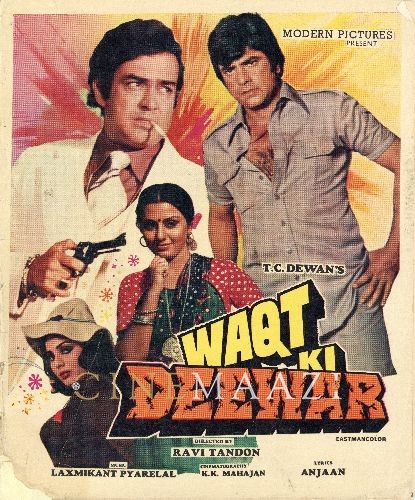
Waqt Ki Deewar 1980
-

Dhan Daulat 1980
-
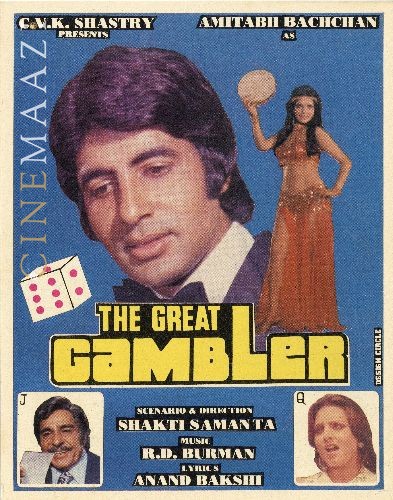
The Great Gambler 1979
-
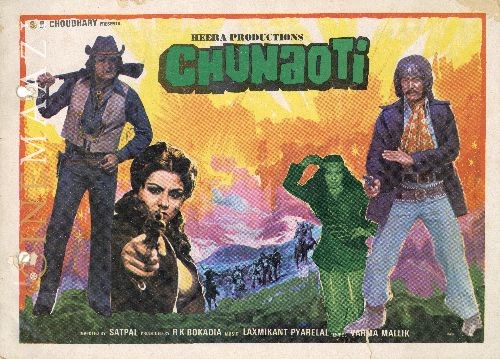
Chunaoti 1979
-
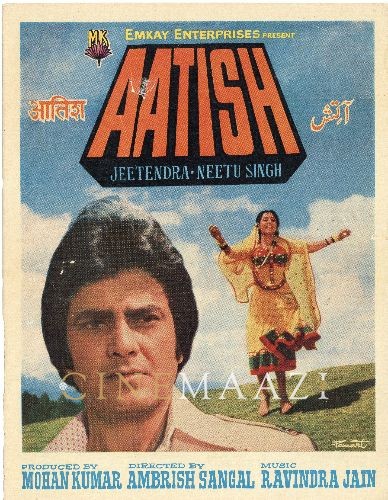
Aatish 1979
-

Duniya Meri Jeb Mein 1979
-










.jpg)



